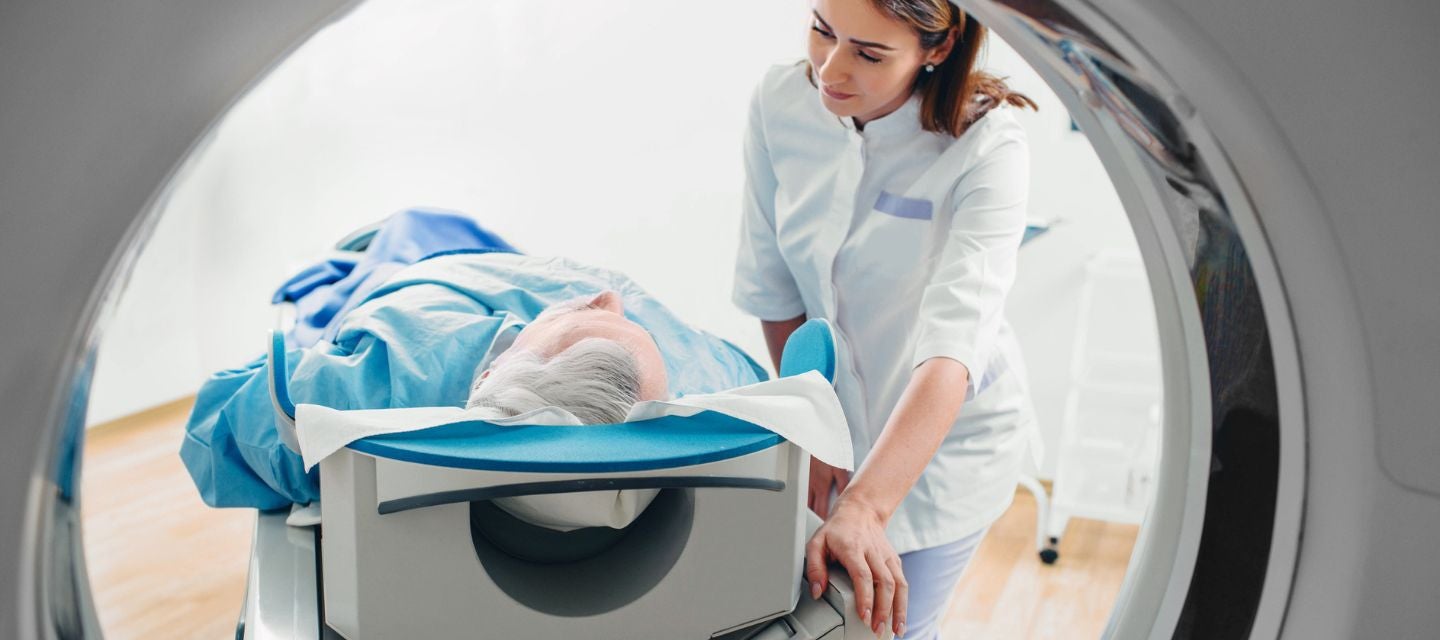
15 May 2024
CT scans for cancer detection & treatment
15 May 2024
CT scans for cancer detection & treatment

Cancer is a complex illness that affects millions of people around the globe.
In 2023, the Australian Institute of Health and Welfare (AIHW) projected a total of 165,000 new cancer diagnoses and 51,000 fatalities attributed to cancer.
Detecting cancer at an early stage is crucial for successful treatment and improved patient outcomes. A particularly valuable tool is the computed tomography (CT) scan, which helps doctors to effectively detect, diagnose and monitor the progression of different types of cancer.
Cancer detection
Australia’s National Screening Program is available to eligible members of the population for free, to detect bowel, cervical and breast cancer. Screening is a form of testing for a disease when you don’t have any symptoms or are at a high risk for developing cancer. This is an important distinction from diagnostic imaging, where usually clinical symptoms or strong risk factors for a disease are present. You can learn more about screening here.
CT scans can effectively help diagnose various types of cancer by providing detailed images of a person's anatomy which can then localise tumours to a specific location in the body, their size and any involvement with surrounding organs or tissues.
CT scans are useful when evaluating cancers in specific organs such as the liver, lungs, pancreas and kidneys. CT scans can also assist in staging the progression of cancer, determining the extent of tumour spread, response to treatment and hence helping guide treatment decisions.
Treatment response
CT scans are an essential imaging modality doctors employ to monitor treatment response in cancer patients. By comparing CT imaging taken before, during and after treatment, doctors are able to assess tumour shrinkage, stability or progression.
The information that healthcare professionals glean from these scans can help guide treatment decisions, including adjusting therapeutic strategies or assessing the need for surgery.
Contrast agents
To enhance image quality, radiologists sometimes use contrast agents when performing some types of CT scans. These contrast agents can help differentiate between normal and abnormal tissues in the body.
Some patients may have allergies or adverse reactions to these agents, so it is essential to inform doctors of any known allergies prior to undergoing a CT scan.
Radiation exposure
When undergoing a CT scan, patients are exposed to a small amount of ionising radiation, which carries a low risk of increasing incidence of cancer.
Modern low dose CT scan protocols have significantly reduced radiation exposure while maintaining diagnostic accuracy.
CT for radiotherapy
When giving radiotherapy, CT scans act as a guide of where to focus radiation therapy. This precision allows specialists to deliver accurate and effective doses of radiation to cancerous tumours, while minimising exposure to surrounding healthy tissues.
Reasons to get a radiotherapy CT scan
Treatment planning: The primary reason for undergoing a radiotherapy CT scan is to allow the careful planning of radiation therapy. The detailed images obtained help oncologists precisely identify the size, shape, and location of the tumour.
Target volume definition: Accurate delineation of the target volume is essential for effective radiotherapy. Radiotherapy CT scans provide the necessary information to define the boundaries of the tumour, ensuring that radiation is delivered specifically to the cancerous cells.
Organ-at-risk identification: Beyond targeting the tumour, radiotherapy CT scans help doctors identify organs and other body parts surrounding the tumour. This helps to minimise radiation exposure to these healthy tissues.
Treatment simulation: Radiotherapy CT scans serve as a simulation tool, mimicking the conditions of actual radiation therapy. This simulation allows doctors to test the feasibility and accuracy of the planned treatment.
Dose calculation: Accurate dose calculation is a cornerstone of effective radiotherapy. Radiotherapy CT scans provide the data needed to calculate the appropriate radiation dose.
More information
The use of CT scans in modern medicine has revolutionised cancer detection by providing healthcare professionals with detailed imaging that can aid in the early diagnosis, treatment, planning and monitoring response for many cancer patients.
With ongoing advancements, the potential of CT scans in oncology continues to grow, offering improved accuracy, reduced radiation exposure and enhanced patient care.
If your doctor has requested a CT scan for you, book your appointment online HERE.
Why you can trust I-MED Radiology
Our team of content writers create website materials that adhere to the principals set out in content guidelines, to ensure accuracy and fairness for our patients. Dr. Ronald Shnier, our Chief Medical Officer, personally oversees the fact-checking process, drawing from his extensive 30-year experience and specialised training in radiology.
